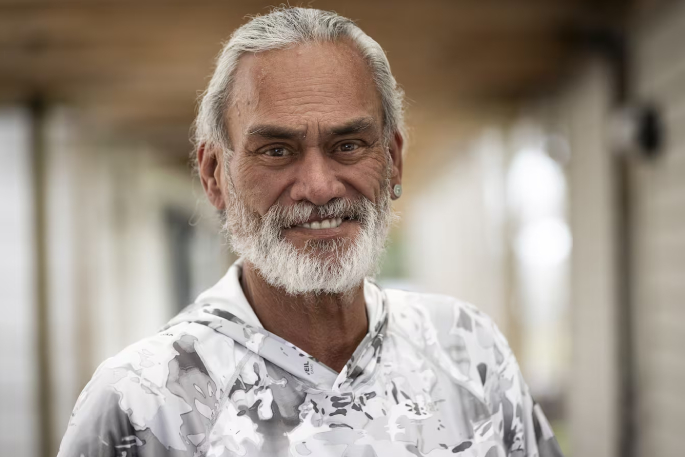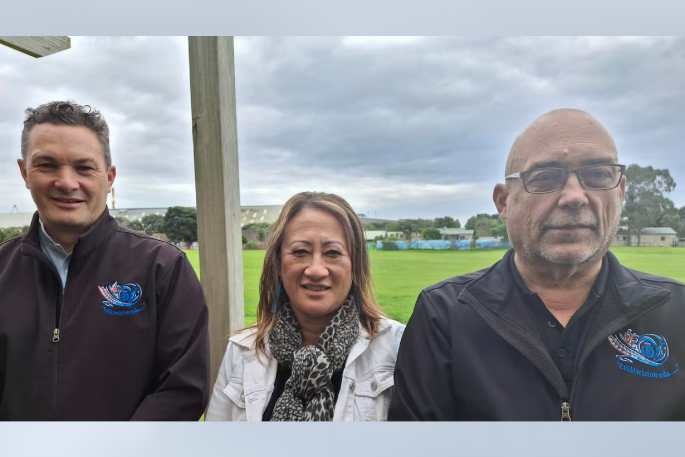Contributed content
Carmen Hall is a communications advisor for Te Rūnanga o Ngāi Te Rangi Iwi Trust and a former Bay of Plenty Times journalist.
Ngāi Te Rangi operates a Te Pae Oranga justice programme in Tauranga with police, supported by public funding.
A justice programme focused on second chances is helping hundreds of people every year in the Western Bay of Plenty avoid the courts and criminal convictions.
Te Pae Oranga is a police and iwi/Māori initiative that deals with low-level crime, prevents reoffending and asks the most important question: Why?
Latest data also reveals the cultural makeup of people being referred was also changing as other ethnicities now outnumbered Māori.
Helping get lives back on track
Ngāi Te Rangi Te Pae Oranga in Tauranga has been operating since November 2021 and is designed to support people who have found themselves on the wrong side of the law in getting their lives back on track.
It uses tikanga and kaupapa Māori and restorative justice practices – and every week a steady stream of people appear before police representatives and community panellists charged with everything from theft to assault and drug and driving offences. They are supported by Ngāi Te Rangi social workers and kaimahi (staff).
Unemployment, poverty, hardship, homelessness, mental health issues and the rising cost of living are reoccurring themes behind many of the offences, community panellist Saphire Pohatu said.
“It’s huge. There are a lot of thefts from supermarkets and drive-offs from gas stations. When we get to the nitty gritty it’s homelessness, addiction, mental health, benefit dependency, low self-esteem and confidence.”
Fellow panellist Tangihaere Nathan said some people stole because “they are hungry”.
Both had been involved with social services for decades and agreed the tikanga approach worked because they were prepared to listen.
Often harder than going to court
Police-supported resolutions co-ordinator Glen Morrison said Te Pae Oranga was often harder than going to court “because people have to own what they did”.
“It’s about being accountable for the offence they’ve committed. They have to admit responsibility for their offence and sit in front of a group of people from the community and talk about what they actually did. In court, they often don’t have to say anything as their lawyer will do all the talking.”
Morrison said according to its data last year it dealt with about 270 cases – well above the forecasted target of 230 cases. This year the target was 260 cases.
People from all walks of life and ethnicities could be referred by the police to Te Pae Oranga as long as the offence carried a sentence of less than six months in prison.
A 2024 breakdown of people referred to the programme in the Western Bay showed 47% identified as Māori, 40% NZ European and 13% other ethnicities.
Crimes dealt with included assault, driving and drug offences, shoplifting, theft and neighbours at war, he said.
Age was not a factor either. A person in their 80s had been referred to Te Pae Oranga.
A programme to address the 'why' of offending is meeting with success in the Western Bay. Photo / 123RF.
‘It’s a mana enhancing programme’
Te Pae Oranga liaison officer Sergeant Tony Tamatea has been a police officer for 22 years and believed the programme was making a difference.
He said Te Pae Oranga means to talk, listen and become well. When people walked through the door they were often nervous.
“They don’t know what to expect. They meet the panel, and by the end of it, you feel an uplift in them. It’s a mana-enhancing process. Obviously, it doesn’t work for everybody, but for the majority it does.”
Te Pae Oranga process and outcomes
Each session could take up to an hour and begins and ends with a karakia. There are introductions all around before the charge sheet is read. The person is asked to acknowledge the offending and explain why it took place and the circumstances that led to it.
In some instances, a victim may address the person and talk about the impact.
There are questions to gauge what has been happening in the offender’s life and how they feel before outcomes are agreed upon. Referrals can be made to counselling, addiction, employment, health, accommodation and budget services. There was access to driver licencing, kai and living without violence programmes.
 Addressing the "small stuff" means keeping people out of jail, says Ngāi Te Rangi chief executive Paora Stanley. Photo / 123RF.
Addressing the "small stuff" means keeping people out of jail, says Ngāi Te Rangi chief executive Paora Stanley. Photo / 123RF.
But this is not lip service. Contracts are signed, deadlines are set and goals are assigned.
Failure to meet expectations means the case will go back to court.
Walking the talk
“If we can suggest one small thing for people to make a change in their lives, then it’s all worth it.”
That is the view of Ngāi Te Rangi social worker Pou Pohatu who fronts the tightknit Te Pae Oranga team. They are the first and last responders for those referred to the programme. They help navigate people through the process and have seen the results of the programme firsthand.
Pohatu said the wraparound service was key to people staying on the straight and narrow.
“Even after they complete their plan, we stay in touch. This way, they know they can still rely on us as someone to talk to when times might get difficult again, or urges emerge, or hunger reappears.
“So, for us it’s more than just ‘hearing a case’ and this is why the programme works. We respect where they’ve come from or where they are.”
Victims were not forgotten either.
“Some of what they go through can be and sometimes is devastating. Whatever they require to heal … we try to provide.”
 Ngāi Te Rangi chief executive Paora Stanley. Photo / Alex Cairns.
Ngāi Te Rangi chief executive Paora Stanley. Photo / Alex Cairns.
Ngāi Te Rangi chief executive Paora Stanley said the programme was a “huge success”.
“Often the journey to jail for Māori starts with minor charges … so if you’re able to address the small stuff you’re able to keep your people out of jail. This programme does this and that is why I love it.”
Te Pae Oranga was launched nationally in 2013 but has expanded with Government funding. Nationally there are 23 programmes including Rotorua and Whakatāne and police data indicates that 17,405 Te Pae referrals had been made between October 2017 and April 2023.



0 comments
Leave a Comment
You must be logged in to make a comment.